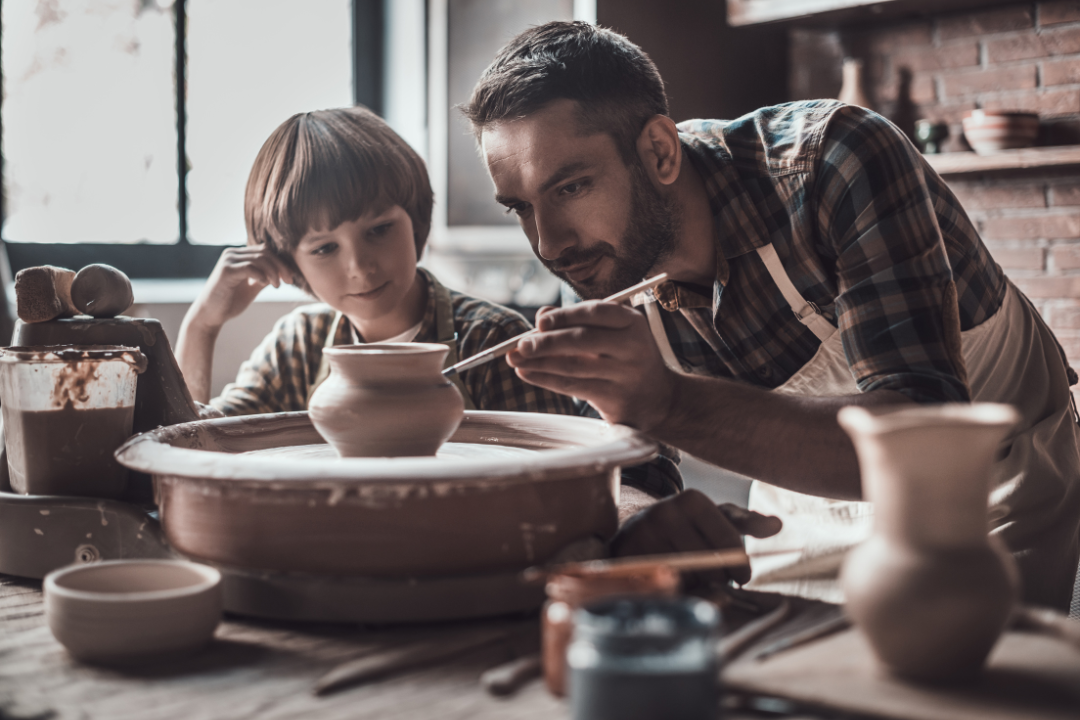Let’s be honest—we were mostly left to figure out life’s biggest lessons on our own. Sure, we learned how to solve for x, memorise Shakespeare, and label every part of a cell. But handling money, managing stress, or building a life beyond textbooks? Crickets.
It wasn’t until I stepped into adulthood, with all its messy reality, that I realised how many crucial life skills school never taught—and how essential they really are. These are the lessons that no exam could ever prepare you for, the ones that quietly shape who you become.
Here’s what school should have taught us—and what I’ve learned the hard way.
1. How to Manage Your Finances Without Losing Your Mind
I remember the first time I got my credit card bill. I stared at it for a solid 10 minutes, heart racing, wondering if I’d done anything wrong. That’s when it hit me: I had no clue how money actually worked.
Financial literacy isn’t about becoming rich—it’s about feeling in control. What I wish I’d learned earlier is that managing money well starts with setting goals based on your values, not just the things you want. Build an emergency fund before you actually need it. Pay off high-interest debt fast. And don’t wait to start investing—compound interest really does work like magic.
A simple first step? Download a free budget app and track your spending for just one week. You’ll be surprised at what you discover—like how much those “tiny” coffee trips really add up.
2. How to Actually Take Care of Yourself
Self-care isn’t just bubble baths and face masks. It’s noticing when your body, mind, or spirit is stretched thin—and responding with kindness instead of guilt.
I learned this the hard way after a week of powering through 14-hour workdays, surviving on instant noodles and caffeine. My body didn’t just protest—it staged a full-on revolt with anxiety and exhaustion.
Taking care of yourself means making rest a non-negotiable priority. Sleep like your life depends on it, move your body daily—even a short walk works wonders—and eat food that fuels you rather than just fills you. Unplug from screens before bed and give yourself space for stillness, journaling, or breathwork.
Here’s the kicker: don’t wait until you “have time.” Treat self-care like an important meeting—because, honestly, it is.
3. How to Cope With Pressure Without Spiralling
Life throws curveballs—sometimes big, sometimes small—but it’s how you respond that matters. Coping isn’t about avoiding stress; it’s about responding with tools that actually help.
I’ve found a few strategies that make a difference:
- Name the feeling: Saying “I’m overwhelmed” out loud can take the edge off.
- Move your body: yoga, jogging, or even stretching to release tension works wonders.
- Try breathwork: Inhale for four counts, hold four, exhale four. Simple, surprisingly calming.
- Talk it out: Sharing with someone you trust can make all the difference.
I keep a “stress toolkit” on my phone—a quick checklist for when things get heavy. It’s like having a lifeline ready before you need it.
4. How to Manage Time Like a Pro (and Still Have a Life)
For years, I thought being busy meant being productive. I’d fill my days with endless tasks, feeling constantly behind, and somehow proud of it.
Then I discovered the magic of intentional time management. Everything shifted. Suddenly, I got more done and felt present while doing it.
Here’s what worked:
- Prioritise with the Eisenhower Matrix: Urgent vs. Essential Tasks.
- Block time for deep work and breaks.
- Use tools: Task apps, sticky notes, or handwritten lists.
- Learn to say no: Protect your yeses for what truly matters.
My favourite morning ritual? Planning my top three goals before checking email or social media. Owning your morning sets the tone for the whole day.
5. How to Start a Business (or Think Like an Entrepreneur)
School taught us to follow instructions—but rarely how to build something from scratch. If you’ve ever dreamed of starting a business, you’ve probably felt that mix of excitement and terror.
Here’s the truth I’ve learned: entrepreneurship isn’t just for startups or venture capital. It’s about spotting problems, taking smart risks, and creating something meaningful.
Start small—a side hustle is a low-pressure way to experiment and explore new opportunities. Learn from others via YouTube, podcasts, or mentors. Validate your idea before committing fully. And understand the basics—marketing, money management, taxes—so you’re building something sustainable.
A quick win? Write a one-page business plan. Even as an exercise, it sharpens your focus and shifts your mindset from dreamer to doer.
Key Takeaways
School gave us structure, but the lessons that truly help us live—fueling confidence, freedom, and resilience—often have to be self-taught.
Essential life skills not taught in school are the ones that shape who we become outside the classroom. Managing finances, protecting your peace, building something from nothing—you can learn, grow, and thrive.
No grades. No tests. Just real life—and the tools to navigate it better.
